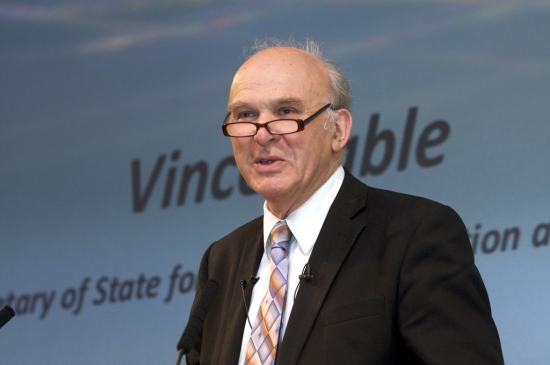Business Secretary Vince Cable has at last responded to calls from industry representatives to examine the benefits of freezing or lowering business rates on commercial property after learning that bill payers don’t believe they will benefit from the upcoming delay in revaluation.

Mr Cable has announced that he will seriously look into the possibility of reorganising the whole system in a bid to help struggling UK retailers – many of whom have seen their business rates skyrocket over recent years.
By the time this year’s bills arrive in April, business owners will have seen their rates increase by a staggering 13 per cent in only three years.
This is especially shocking given that the increases have occurred during a time of recession, when small shop owners and even larger chain retailers have suffered from a blow to consumer confidence.
The combination of falling income and higher running costs have forced many retailers to throw in the towel rather than risk bankruptcy by going cap in hand to their lenders year after year.
Technically, the matter of business rates falls under the remit of Communities Secretary Eric Pickles, a fact which was acknowledged by Mr Cable. Yet he felt compelled to raise the issue after retailers in his own constituency, Twickenham, pointed out that the delay in revaluation would see them continuing to pay similar rates to those charged before the recession, thus damaging the state of their finances considerably.
Mr Cable said; “In good faith, the Government said, ‘Let’s delay the revaluation to help small businesses.
“I’ve asked my people what we can do to allow us to look at fresh evidence. I want to keep an open minded approach.”
One significant matter which retailers will expect Mr Cable to look into closely will be the discrepancy between traders based in commercial properties and those who operate online. Thanks to significantly lower business rates and running costs, online retailers can often afford to charge lower prices and offer free deliveries – giving them an unfair advantage over high street traders.
For example, a business in Clapham, south London will have to pay around £919 per square metre in business rates per annum – a high amount considering the falling numbers of consumers hitting the high street these days. Yet popular online company Amazon pays only £44 per square metre for its distribution centre which is based in Milton Keynes.
Not surprisingly, it is independent retailers who are struggling most under the high rates they are expected to pay.
Michael Weedon, of the British Retail Consortium (BRC), claims that family-run shops suffered a 2.5 per cent dip in sales in the final quarter of 2012, yet these businesses will still have to pay a significantly higher amount than the likes of Amazon which earned billions of pounds in online sales over the Christmas trading period alone. He is encouraged that the matter has been brought to the attention of the Government, but is not convinced that a resolution will be agreed upon easily.
He says; “I am heartened that Vince Cable is looking at this, but I wonder how many in the Cabinet feel the same way.”
Do you think Mr Cable will be able to find a suitable solution to the issue of impossibly high business rates, or will the need to bolster the British treasury mean that small business owners will continue to be stretched to breaking point? What would you suggest might improve the business rates system if you had the ear of the Business Secretary?
Previous Post
Small Retailers in No Win Situation over Accident Claims